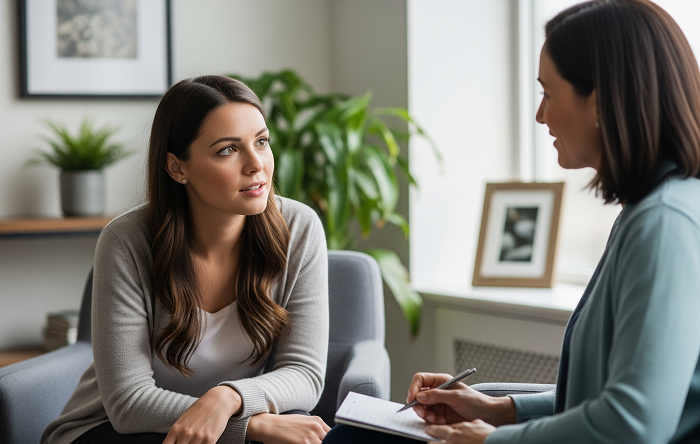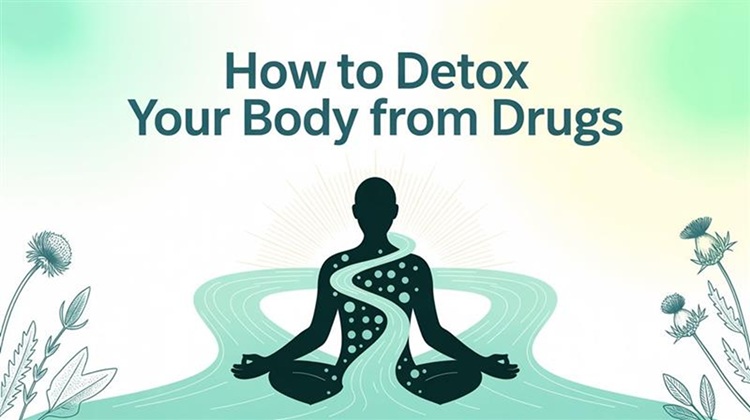When the feeling of anxiety occurs occasionally, it is quite normal; however, when it begins to disturb normal life, it is time to seek effective methods of managing this problem. Anxiety Coping Skills are skills and techniques that you may apply to calm your mind and control the reaction of your body, as well as strengthen yourself over the long run. At DeLand Treatment Solutions, we are convinced that you can learn these skills that can make you feel in charge of your mental health and live more confidently.
Understanding Anxiety
Anxiety is not merely stress; it is a constant state of fear, worry, or arousal that has the potential to affect your thoughts, feelings, and even your physical well-being. The symptoms are mainly restlessness, thoughts going through the head, a fast heart, weight loss, and tension. Although all people perceive anxiety in their own ways, the appropriate coping skills could make a significant difference.
Coping Skills for Anxiety
Suitable coping strategies would enable you to deal with anxiety at its initial level. Among the most effective and evidence-based approaches, the following ones can be identified:
1. Practice Deep Breathing
One of the easiest methods of relaxing the nervous system is deep breathing. Attempt breathing in a slow, four-count through your nose, then hold for four counts and breathe out through your mouth in six counts. This can slow your heart rate and provide instant relief.
2. Bring Yourself to the present with Grounding Techniques.
There is always the fear of the future, which the anxiety pulls us into. Practices of the grounding technique, like the 5-4-3-2-1 method (noting five things you see, touching four things you feel, hearing three things, smelling 2 things, and tasting something), can make you come back to the present.
3. Exercise and Move Your Body
Exercises are a method of stress relief. The answer is to exercise, such as walking, stretching or even dancing, which will release the endorphins and will lead to regulating your mood. Do some exercises for at least 20-30 minutes on most days.
4. Arguing against Negative Thinking.
Most instances of anxiety are caused by what-if thinking. Note your areas of concern and determine if they are realistic or supported by facts or not. Cognitive restructuring is one of the essentials of this kind of treatment and perhaps a major competence.
5. Maintain Healthy Routines
You can do it by exercising your brain through getting adequate sleep, consuming balanced foods, and keeping hydrated. Your body is in a better condition, and then the stress is easy to manage.
6. Connect with People who Help.
Isolation may be relieved through talking to someone whom you may trust. It is easy to release the burden, regardless of whether it is a friend, a family member, or your support group.
7. Practice Relaxation Techniques.
Your body can be trained to relax when you wish, through meditation, yoga, or progressive muscle relaxation. Begin with a small amount of time per day and increase when you are comfortable.
8. Limit Caffeine and Alcohol
Caffeine and alcohol are the two substances that may aggravate the state of anxiety further. Oh, and just do without coffee and do not drink it when you are already stressed or nervous.
9. Write about Your Ideas and Emotions.
Writing may assist you in working out emotions and observing trends in your anxiety-provoking situations. It is also helpful to keep a day-to-day log to keep track of what coping skills are best suited to you.
10. Seek Professional Support
Otherwise, coping skills are not adequate in their own right; that is all right. Therapy sessions will also allow you to have access to such organized approaches as CBT, DBT, or mindfulness-based therapies to manage anxiety more effectively.

100% Confidential Support is Available 24/7
No matter what you’re going through, you’re not alone. Our dedicated team is here to provide a safe, judgment-free space where you can talk openly and honestly. Whether you need emotional support, resources, or just someone to listen.
We’re here for you—completely confidential and always respectful of your privacy. Call us today!
Why Coping Skills Matter
The coping skills not only alleviate the symptoms on a short-term basis, but they also provide strength on a long-term basis. The avoidance of the panic and anxiety process can be achieved by conditioning your brain to react to stress differently and perhaps a gradual decrease in the number of anxious thoughts with the assistance of performing the same action repeatedly.
Get a Step with DeLand Treatment Solutions.
One does not have to face anxiety alone. We offer evidence-based caring treatment at DeLand Treatment Solutions, which is aimed at reclaiming your life. It can be generalized anxiety or panic attacks or co-occurring conditions; either way, our team will help you to feel relieved in the long term.
Ready to take the first step? Today, we can speak about your personal method of healing yourself and getting into the process of recovery, which will only require you to call or fill out and send our secure contact form.
Deland Treatment Solutions
Battling with Drug and Alcohol Addition? Remember, you are not alone and we are here to help you!
Frequently Asked Questions About Coping Skills for Anxiety
Can coping skills completely cure anxiety
Coping skills don’t usually “cure” anxiety, but they help you manage it effectively. Many people find that consistent practice reduces symptoms so much that anxiety no longer controls their daily lives.
How fast do coping strategies work?
Some coping strategies, like deep breathing or grounding techniques, can work within minutes. Others, like building healthy routines or challenging negative thoughts, may take a few weeks of practice before you notice a big difference.
Are natural remedies effective for anxiety?
Yes, natural approaches like mindfulness, exercise, and relaxation techniques can be very effective for many people. However, severe anxiety may require a combination of natural coping skills and professional treatment.
What is the best coping skill for panic attacks?
Slow, deep breathing and grounding techniques are often the most effective during a panic attack. They help calm your body’s “fight-or-flight” response and remind you that the attack will pass.
When should I talk to a professional about anxiety?
If anxiety is interfering with work, relationships, or daily functioning, it’s a good idea to reach out for professional help. Early treatment can prevent symptoms from becoming more severe over time.





















